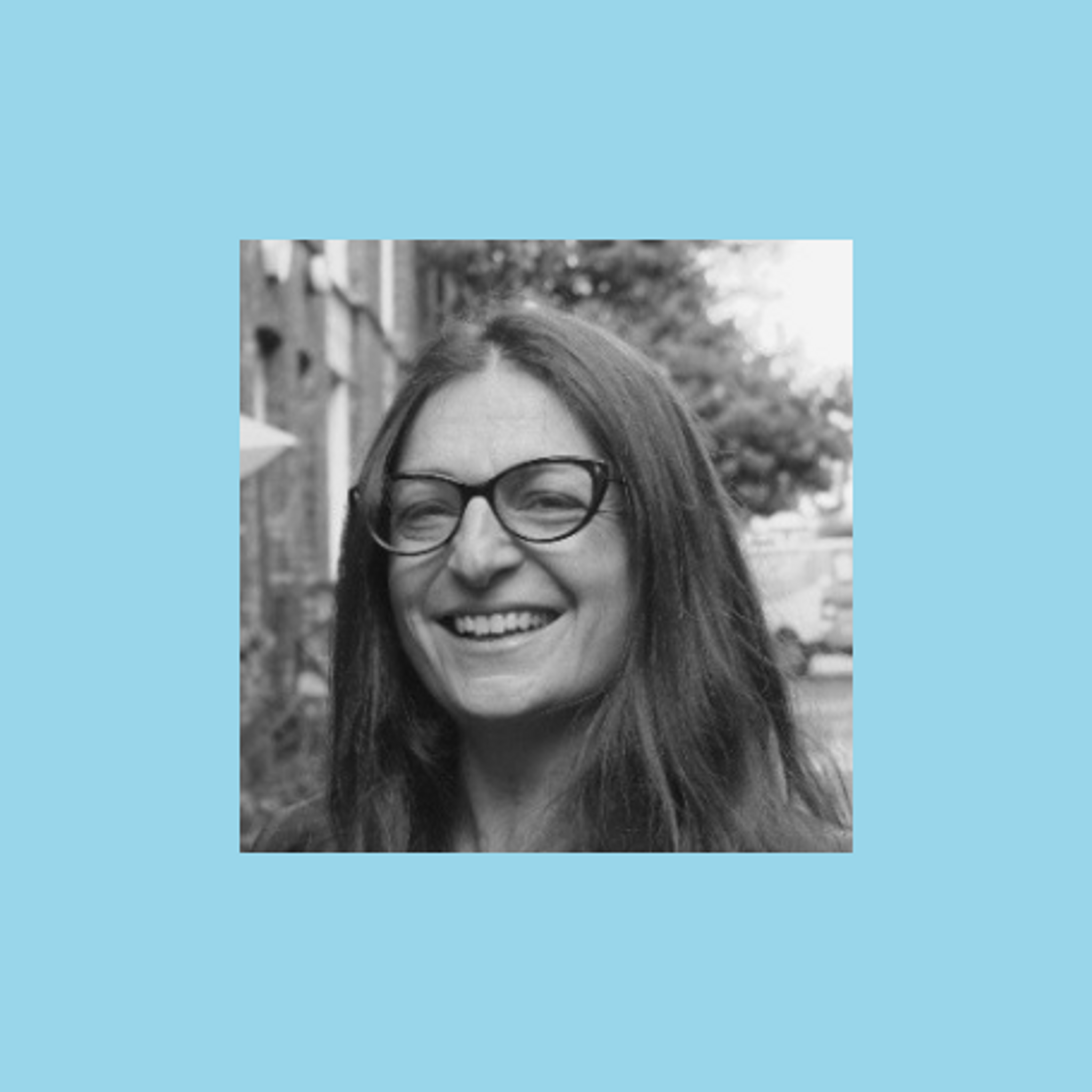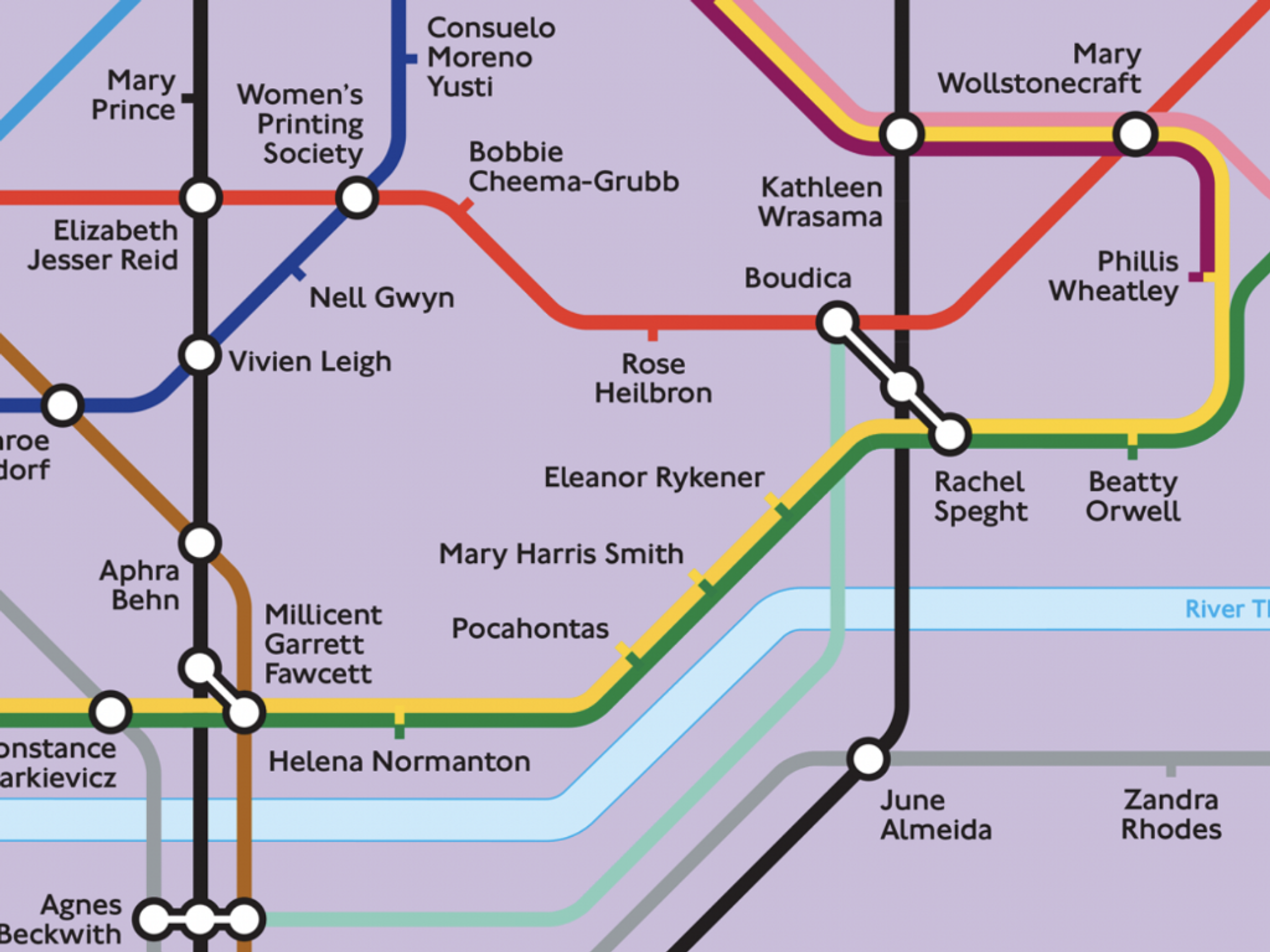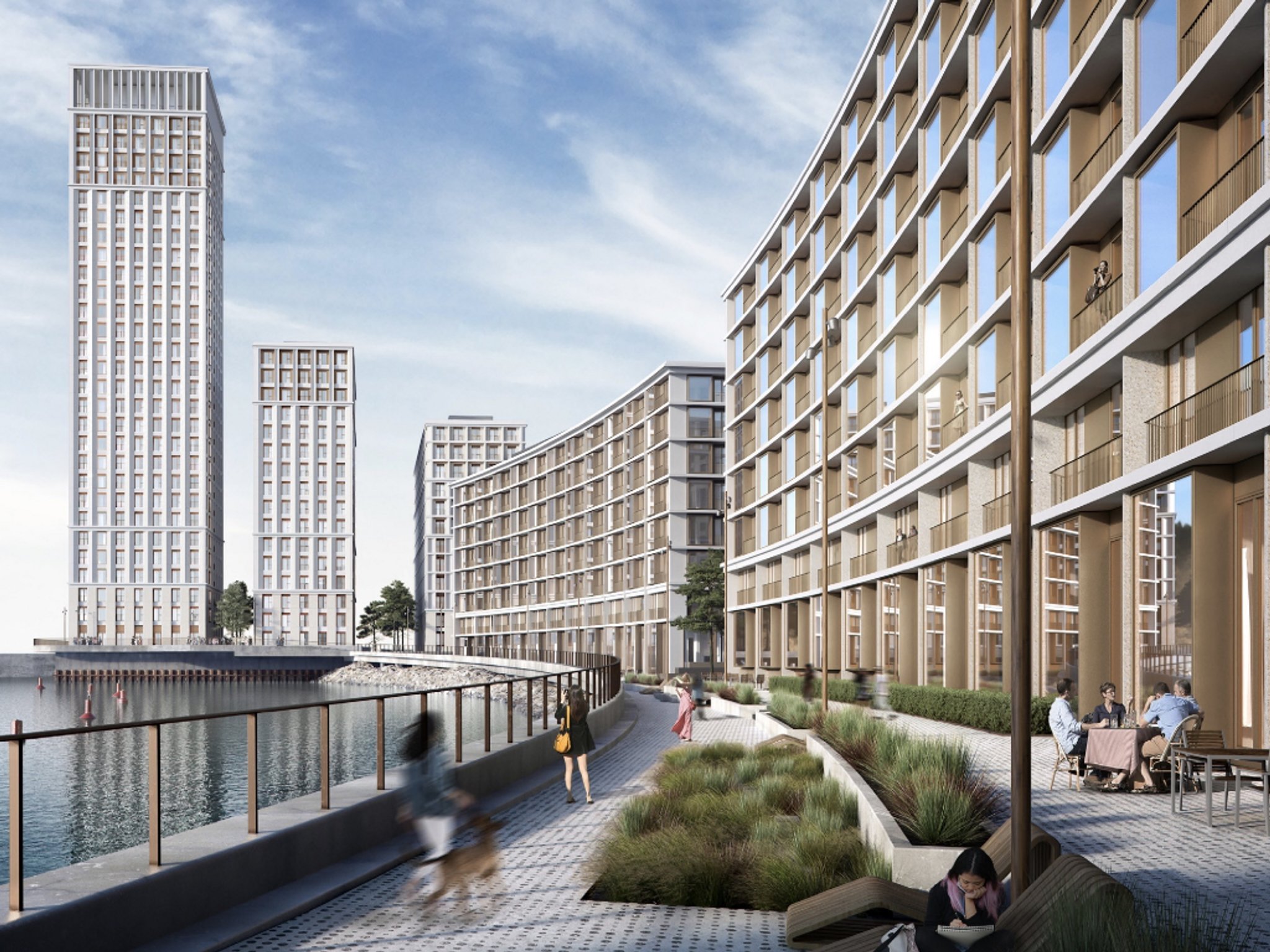What is the long-term impact of the Olympics on east London and its communities?
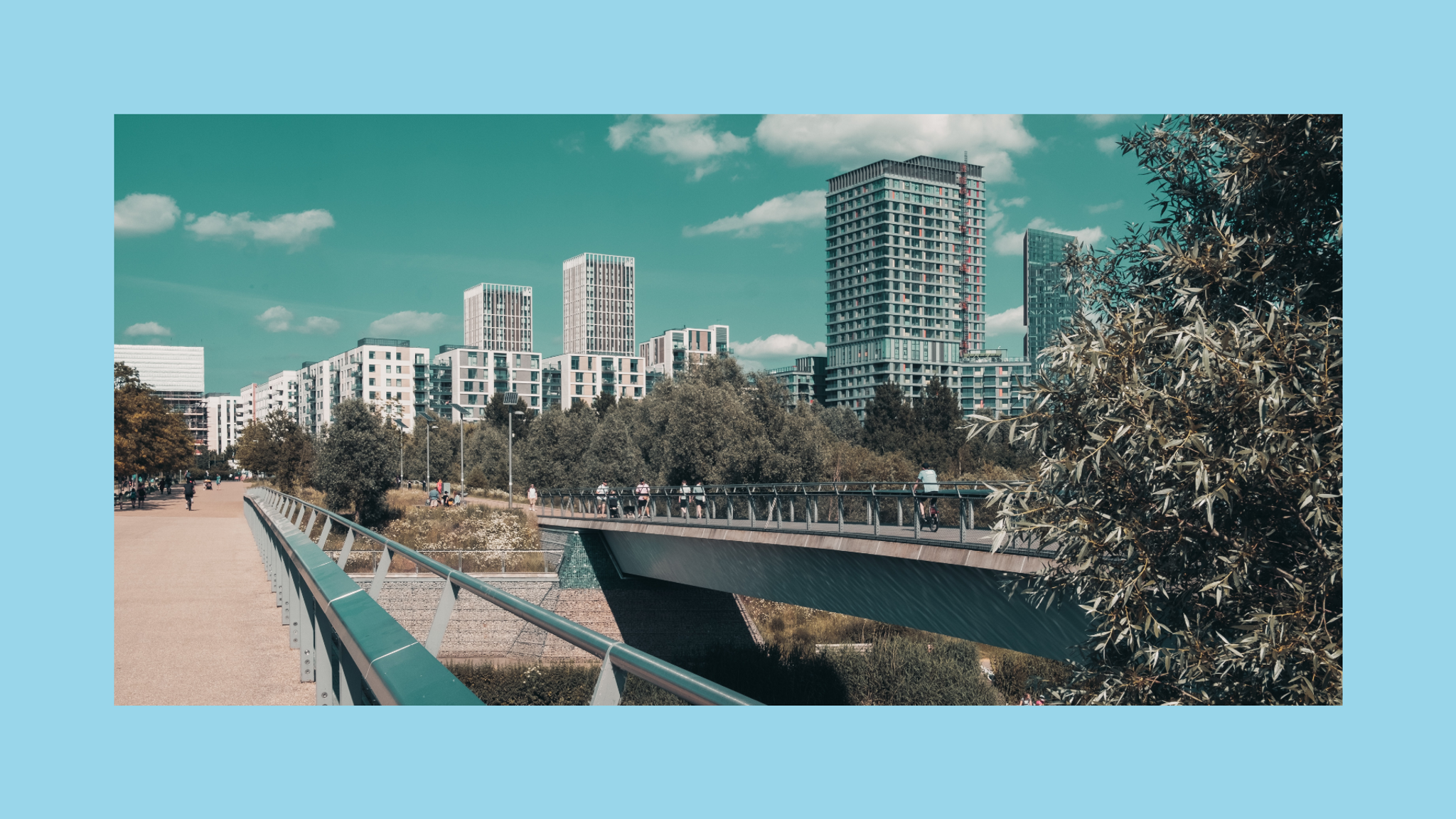
Olympic Park Avenue, London, UK. Photo: Samuel Regan-Asante, via Unsplash
2022 marked the 10th anniversary of the London 2012 Olympic Games, an international sports 'mega-event' accompanied by ambitious promises regarding its legacy for the regeneration of east London and its diverse communities. Before its transformation, the site of what is now the Queen Elizabeth Olympic Park accommodated a variety of small-scale manufacturing businesses, which were closely connected to adjacent working-class neighbourhoods where many of the workers lived. All this was swept away to create a blank slate for the Games, and the subsequent development of a new knowledge economy that would transform the heart of east London.
UCL has been a key stakeholder in the post-Games redevelopment process, due to the establishment of the new UCL East campus in the park, and we have been profoundly implicated in the discourse of regeneration that has unfolded. Both UCL Urban Lab and the UCL Institute for Global Prosperity have been extensively involved in work to establish an ethical framework for regeneration in the area, and ensure that the voices of under-represented communities in one of the most deprived and super-diverse boroughs in the UK are heard and acted upon.
10 years on, we wanted to reflect critically on the long-term impact of the Games since the 'Convergence' agenda was adopted in 2009 by east London local authorities (the Olympic Host Boroughs) as a benchmark for what regeneration should achieve: equal opportunities for east Londoners in line with the rest of London’s population, in terms of access to housing, education, jobs and opportunities, green space, and improved health outcomes. Instead, the vastly unequal impact of the Covid-19 pandemic between 2020 and 2022 in the London Borough of Newham, adjacent to the Olympic park, seemed only to prove that these goals had not been achieved and urgently needed revisiting.
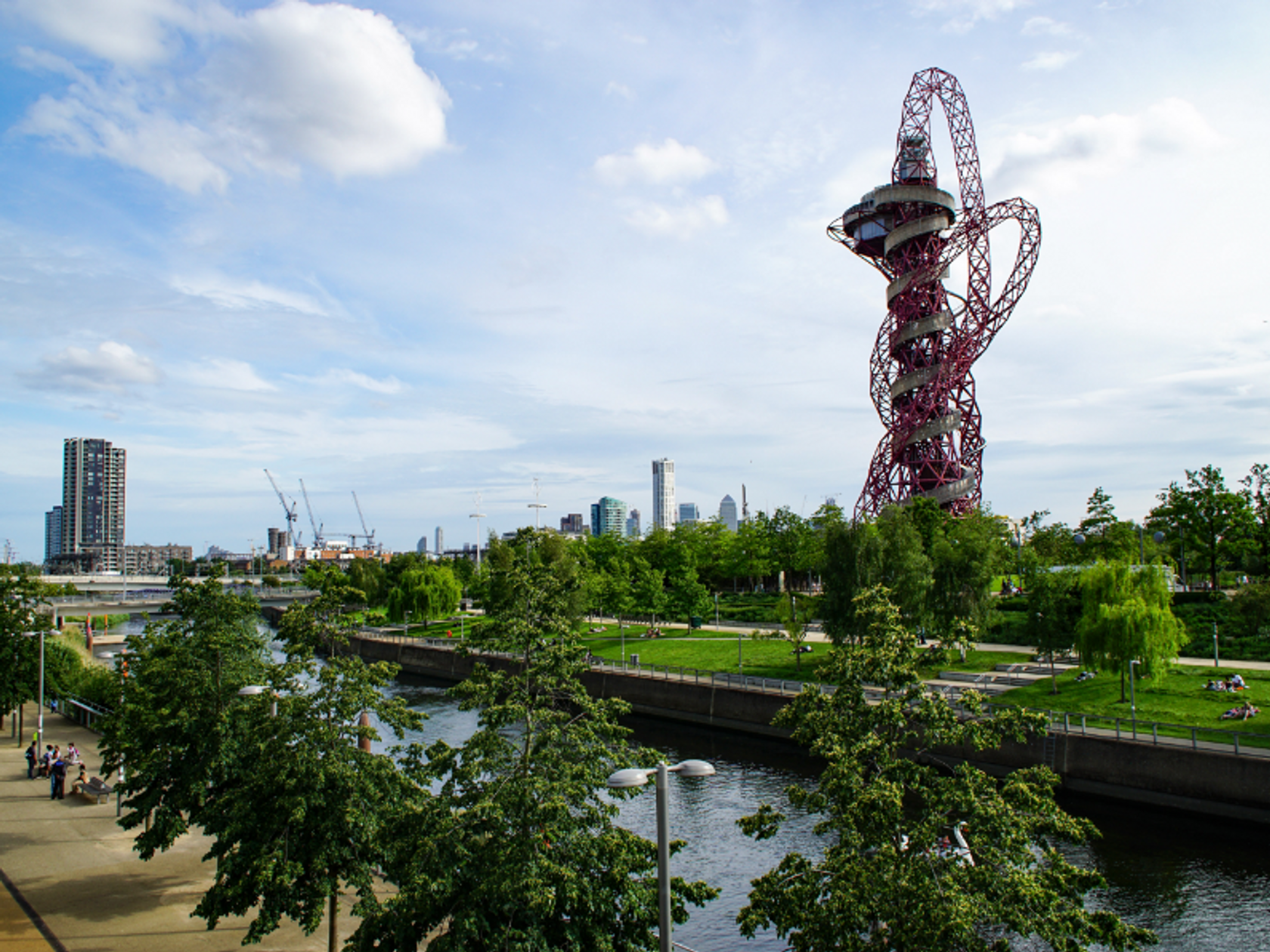
Queen Elizabeth Olympic Park. Photo: Tom Wheatley, via Unsplash
A generation of young people have grown up in the shadow of Olympic regeneration
Accordingly, in September 2022 we hosted a conference at UCL Here East on the 'State of the Legacy', in collaboration with a number of expert partners from University of East London, University of Cardiff and Oxford Brookes University. Over 150 academics, community activists and researchers, east London residents, artists, two local mayors, local authority officers and built environment professionals came together to share their work and experience of the Olympic legacy from the ground up.
The ensuing discussions revealed that concerns with race, class, economic exclusion and genuinely affordable housing were at the forefront of everyone’s minds – in spite of the latest figures from the 2021 census which suggested initial cause for hope for the Olympic Growth Boroughs (Newham, Waltham Forest, Tower Hamlets, and Hackney): a 10% increase in the number of jobs since 2015; more than double the London-wide average of 4%. However, job growth has not translated into job quality. The proportion of Growth Borough jobs paying less than the London Living Wage has almost doubled since 2005, and the number of jobs in low-paying sectors has increased by 8% since 2015. The number of children living in absolute low-income households has grown by 11% since 2014, while income after housing costs is 12% lower than the London average.
Impacts and patterns of change in east London are not evenly distributed among the population. Long-standing, structural inequalities powerfully shape the economic realities and opportunities of residents. Borough-level data show how poverty, insecurity and deprivation remain spatially concentrated, and raise new questions about who benefits from changes to east London’s physical, economic and social landscape.
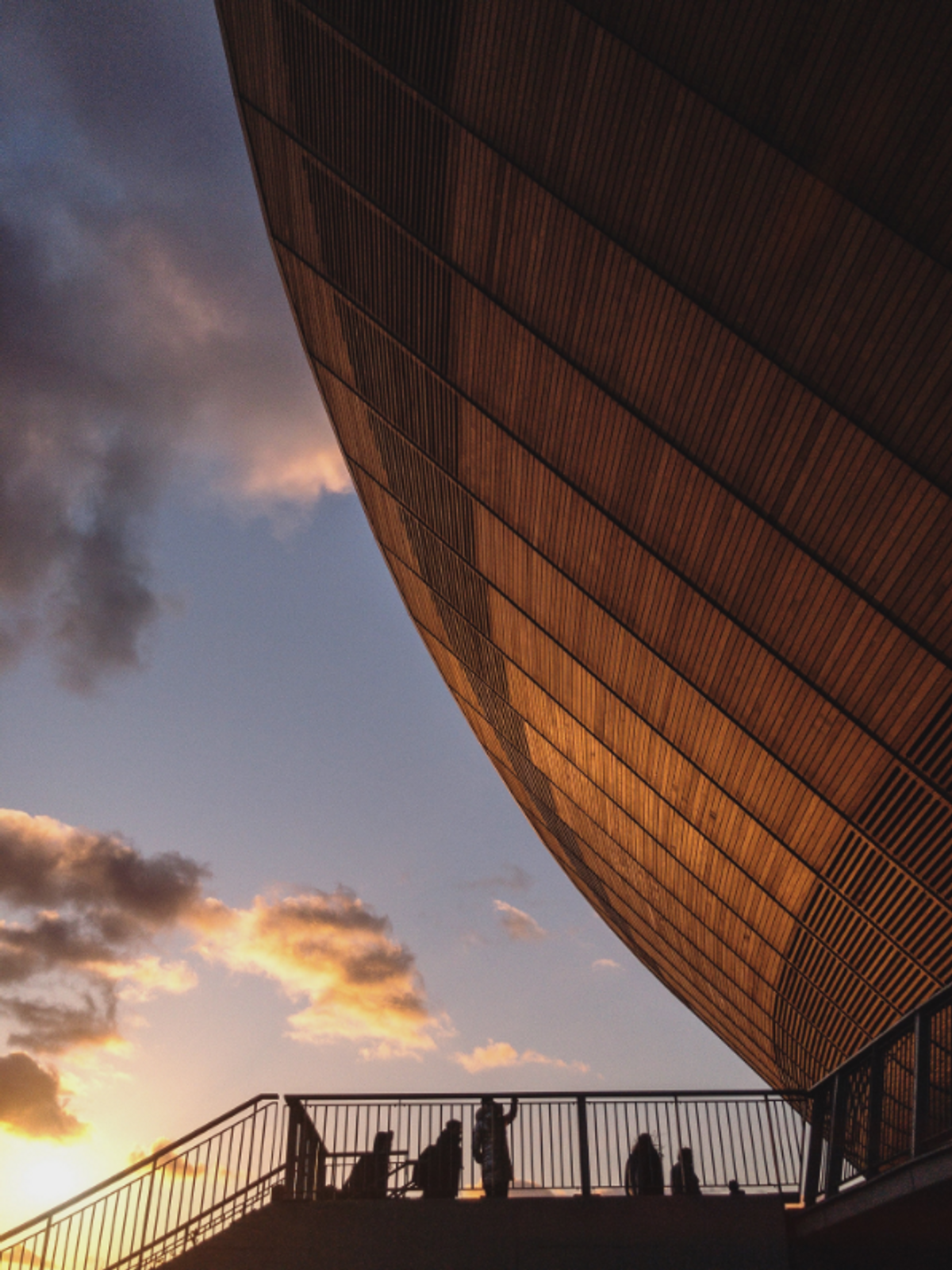
Lee Valley VeloPark, Queen Elizabeth Olympic Park. Photo: Martino Pietropoli, via Unsplash
This points to an ongoing need for communities to be heard in the assessment of legacy outcomes and setting of future priorities. Presentations at the State of the Legacy conference by community campaigner Denise Evans-Barr and artist Jessie Brennan, as well as by Terry Regan and Twinkle Jayakumar – citizen scientists working with UCL Institute for Global Prosperity, activists, and Newham residents – argued for the urgency and importance of community-led research and regeneration to balance the projections and priorities of government officials, policy-makers, planners and construction professionals.
A generation of young people have grown up in the shadow of Olympic regeneration. As youth and community worker Luke Billingham explained, many of these young people – like other local residents – feel a sense of betrayal after having been promised a bright future as a result of London 2012. In addition, larger pre-existing social challenges have not gone away, including violence and racism endured by young black people in east London. Dr Joy White discussed the resilience, resistance and creativity these young people have developed to deal with it in the form of grime and drill music. Meanwhile, Büşra Turan Tüylüoğlu explained how culture-led regeneration policy rolled out in Waltham Forest following the Olympics has been experienced as exclusive by under-represented communities in the borough.
If there is one overarching lesson that emerged from these discussions, it is surely that there is not a single 'legacy', but a multiplicity of interconnecting legacies that need to be analysed more deeply by engaging with and listening to the communities caught up in the great economic and political tides that stem from mega-events such as the 2012 Olympic Games, the ripples of which continue to linger.
Read more about the 'State of the Legacy' Conference and Report

